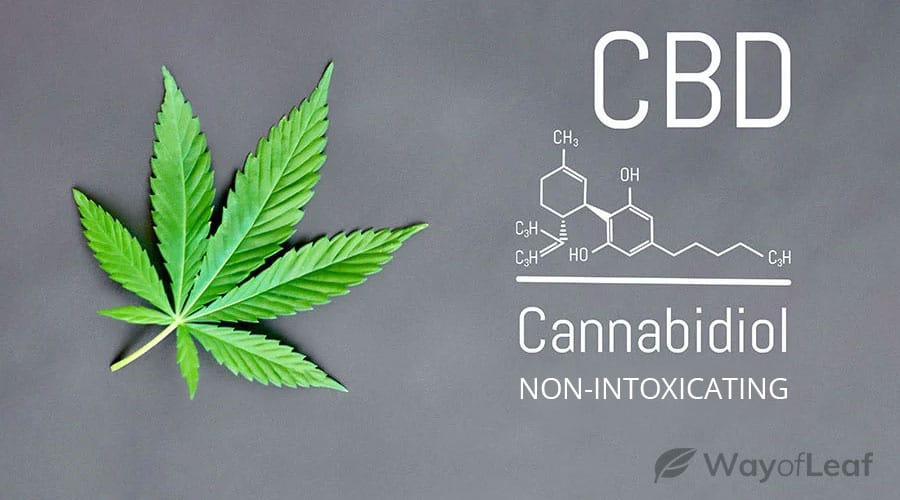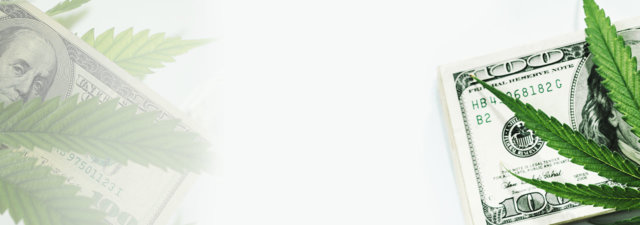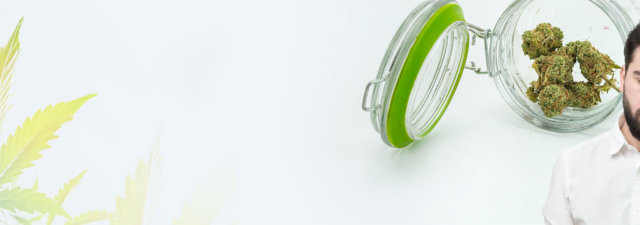The famous cannabinoid THC is usually a hot topic for those with interests in the world of cannabis. However, a compound called CBD has begun making waves, branching the knowledge of marijuana’s benefits far outside their usual circle.
CBD, known scientifically by its full name, cannabidiol, is a widely discussed and debated cannabinoid. It is sourced from either the marijuana plant or from hemp.
Numerous individuals have turned to CBD to relieve various medical conditions and ailments, which is partly why cannabidiol is now a topic of interest. Research continues to pour out about CBD’s apparent effectiveness for lessening certain ailments, yet there is endless misinformation about this cannabinoid.
This article addresses the question of how much CBD it takes to get an individual high. We also hope to clear up misinformation and present some of the real facts related to CBD oil.
What Is CBD? Understanding the Basics
CBD, a.k.a. cannabidiol, is one of a series of organic chemical compounds solely present in the cannabis plant, both marijuana and hemp. These compounds are called cannabinoids. Estimates vary, but some scientists believe there are over 100 identified cannabinoids. However, there are likely many more we have yet to isolate and research.
THC and CBD combined comprise approximately 90% of the cannabinoid content in cannabis.
Pure CBD is 100% natural, meaning it is not produced using anything artificial. Along with CBD, THC is also a commonly discussed cannabinoid. Combined, both comprise approximately 90% of the cannabinoid content in cannabis, which is why they are the most frequently researched and discussed cannabinoids. It is also why they are easier to extract and manufacture on a consumer scale than others.
The categorization of cannabinoids, however, does not just stop at varying compounds. It extends further into other subdivisions, which are important to note to understand better how CBD works within the body and its related systems.
CBD and Other Cannabinoids
CBD, the kind that you can administer from a dropper bottle as an oil or tincture, is known formally as a phytocannabinoid. That is because this CBD derives from the cannabis plant and does not already exist within the body.
Phyto is a root word used when there is a relationship to plants. Therefore, when cannabidiol is present in an organic, extracted form (from plant origins), it is classified as a phytocannabinoid.

It is common knowledge that consumable CBD is usually of plant origin. As a result, the topic of cannabidiol and other cannabinoids already present within the body might seem strange. This process has to do with the endocannabinoid system (ECS), which we explain in greater depth later.
For now, it is just important to note that if a cannabinoid is already present in the body, it is termed an endocannabinoid, not a phytocannabinoid.
Some common additional phytocannabinoids include CBN, THC, CBC, CBG, and CBL, to name but a few.
Can CBD Oil Get You High? Why Some People Think It Can
While the CBD industry is expanding rapidly, it seems the level of misinformation is matching this growth. With such easy access to data online, half-truths and outright lies spread quickly.
The reality is that some people still get confused when it comes to cannabis. They are unaware that marijuana and hemp come from the Cannabis sativa plant. Instead, they assume that all cannabis causes an intoxicating high, meaning all cannabinoids are responsible.
You can indeed find CBD in certain cannabis strains. There are strains such as Charlotte’s Web specifically created with a high cannabidiol content. However, it doesn’t change the fact that CBD, regardless of whether it comes from hemp or marijuana, is non-intoxicating. It will NOT cause a high.
How Does CBD Work with the Body?
How these organic compounds interact with the ECS is why we experience the effects of CBD and other cannabinoids within the body.
The ECS is a system of receptors and neurotransmitters that assist the body with important regulatory functions. These include mood, sleep patterns, appetite, cell production, pain response, and immune response. It essentially functions as a means to maintain homeostasis, or balance, within the body.
When there is an imbalance in cannabinoids, the body can be affected negatively or in bizarre ways, which scientists do not fully understand. Endocannabinoid receptors are found all over the body. They mostly cluster in the brain, throughout the central nervous system, and other peripheral organs. The ECS relates to cannabis because these endocannabinoid receptors can bind the phytocannabinoids we mentioned earlier.
The cannabinoid-like compounds within the endocannabinoid system are referred to as endocannabinoids instead of plant-sourced phytocannabinoids. The ECS is seen as one of the most vital internal systems for human function. However, because it was only discovered in the 1990s, discussions about the endocannabinoid system have only recently unfolded.
WAYOFLEAF’S CHOICE – FabCBD
When it comes to selecting the best and most effective CBD, it really comes down to trial and error and testing out as many products as you can. And that’s exactly what we did. Our review team tried and tested dozens of CBD brands, and we rated FabCBD as #1 overall for potency, value for money, quality & reputation. Try them today and you won’t be disappointed. You can also view the reviews of the best CBD brands here.
CBD’s Effects on the Endocannabinoid System
CBD plays into this entire system because it indirectly affects both known receptors by affecting signaling between them.
The ECS, as of now, has two major known receptors, CB1 and CB2. CB1 is mostly connected with THC (tetrahydrocannabinol). THC’s effects on this receptor trigger and produce the intoxicating effects correlated with the cannabinoid. On the other hand, CBD does not actively stimulate CB1 or CB2; it works indirectly on those receptors and in other areas.
For this reason, the brain is not inclined to produce intoxicating results when cannabidiol is ingested. This is why those who ingest the compound do not find it mind-altering, yet it still has numerous medical benefits.
Some incorrectly say that CBD is non-psychoactive, but more specifically, it is non-intoxicating in that it does not affect cognition as its fellow cannabinoid THC does. This is simply because the two are processed throughout the ECS in different ways.
It’s worth noting that even CBD products from reputable brands extracted carefully and skillfully do not normally contain zero THC. There is typically a minuscule percentage of tetrahydrocannabinol still present.
THC sneaking into your CBD oil is a different story. If you are not familiar with your manufacturer, you may find that the product you take does make you feel a bit high. This almost certainly has nothing to do with the CBD itself and everything to do with the way the cannabidiol was extracted and whether some THC fell into the mix.
Does CBD Oil Get You High? If So, How Much Will It Take?
The answer to the first question is ‘no.’ CBD itself will not cause intoxication, regardless of how much you consume. This means you can use as much of a CBD isolate or broad-spectrum product as you wish without experiencing a high. This is because a true isolate or broad-spectrum product contains practically no THC. It might include less than 0.01% THC, but intoxication will not occur at that level.
However, it is possible to get high from large enough doses of CBD oil depending on the THC content. Remember, CBD products extracted from industrial hemp must have a maximum of 0.3% THC by dry weight. This is because the 2018 Farm Bill legalized the cultivation of hemp with that THC limit. Any plants that contain more are classified as marijuana and are federally illegal.
How Much THC Causes Intoxication?
While you won’t get a CBD high, you could become intoxicated if the product contains too much THC. Cannabinoids impact each person differently due to factors such as body weight and metabolism. Therefore, a specific amount of THC might impact you more than your friend. However, we have heard reports that 2.5mg of THC is enough to cause a mild level of intoxication in some people.
Let’s take an example of a bottle of CBD oil that is 5% strength and contains 30ml of liquid. That product will have approximately 1,500mg of CBD (30000 x 0.05). Suppose its THC content is 0.2%, which is within the legal limit. This means the full container could have 60mg of THC (30000 x 0.002). Therefore, 1ml of this liquid contains 2mg of THC. Consuming 5ml means you’re ingesting 10mg of THC, technically enough to cause intoxication.
Does This Mean CBD Oil WILL Cause a High?
No. It isn’t quite as simple as chugging a bottle of CBD to get high. In reality, the oil in our example above has a 25:1 CBD to THC ratio. CBD counteracts the effects of THC. Various research studies show this, including a study published in the Journal of Neuroscience in 2019. The researchers gave rats either THC or a combination of THC and CBD and compared them to control rats.
They found that when rats consumed the THC and CBD combo, they behaved like the control rats. However, the rats that consumed THC exhibited high anxiety levels and were more sensitive to fear-based learning.
The team found that the THC-consuming rats had higher levels of activated extracellular-signal-regulated kinase (ERK), which triggers the neuropsychiatric effects of THC. The rats that consumed CBD and THC together had normal activated ERK levels.
Unless the CBD oil in question has a highly illegal level of THC, you can stop worrying about getting high.
This follows on from a 2015 study published in the British Journal of Pharmacology. The researchers found that CBD acts as a negative allosteric modulator. This means it binds to a site on the CB1 receptor that is distinct from where THC binds. Supplementation of CBD reduces the efficacy and potency of THC and 2-AG (another endocannabinoid).
Therefore, even if you consume 30ml of liquid containing 60mg of THC, the fact it also has 1000+mg of CBD will prevent the THC from causing intoxication. Unless the CBD oil in question has a highly illegal level of THC, you can stop worrying about getting high.
Does Hemp Oil Get You High?
People sometimes get confused between hemp oil and hemp seed oil. Typically, hemp oil IS CBD oil and is produced using the hemp plant’s leaves, stalks, and flowers. As we’ve already covered, CBD oil extracted from legally cultivated industrial hemp will not cause intoxication.
However, you have even less reason to worry about the effects of THC from hemp seed oil. As the name suggests, it comes from the seeds of the hemp plant. It contains minuscule levels of CBD and no THC. However, hemp seed oil has many potential benefits, including:
- Improving skin conditions
- Antioxidant effects
- Relieving constipation
- Anti-aging effects
- Cardiovascular health effects
Therefore, it is worth adding hemp seed oil to your daily regime. Just make sure you don’t pay a large sum of money expecting it to contain CBD, though.
Final Thoughts on Whether or Not CBD Can Make You High
To understand how your body responds to CBD, it is useful to dig into the science behind how this cannabinoid reacts throughout the endocannabinoid system (ECS).
There is an endless conversation about CBD and its relations to its fellow cannabinoid component, THC. However, we hope this article clarifies the misunderstandings about cannabidiol and why you should not expect to feel high next time you consume it.
It is not scientifically accurate to make the concrete claim that CBD is non-psychoactive. Nonetheless, the way this cannabinoid is processed within the ECS means it will produce very different effects from THC, which is heavily intoxicating.
Yet CBD is a potential medicinal compound that warrants further research. This is because relatively little is understood about its presence and impact on the body. For those who do not want to get high but still desire the medicinal qualities of marijuana, cannabidiol is, by far, the most favorable solution to achieve these results.
While CBD oil products may contain a certain level of THC, the high CBD to THC ratio prevents intoxication.
![What Is the Best CBD Oil Dosage for Dogs? [ANSWERED]](https://wayofleaf.com/wp-content/uploads/2019/03/wol-banner-what-dosage-of-cbd-should-i-give-my-dog-640x225.jpg)


![How to Start a Marijuana Business [And Actually MAKE Money]](https://wayofleaf.com/wp-content/uploads/2019/06/wol_how-to-start-a-marijuana-business-640x225.jpg)
![Hemp vs. Linen [Which Is Best]](https://wayofleaf.com/wp-content/uploads/2019/03/wol_hemp-vs-linen-640x225.jpg)

![Where Does Cannabis Originate From? [Facts and Myths]](https://wayofleaf.com/wp-content/uploads/2018/05/wol-banner-where-does-cannabis-originate-from-640x225.jpg)
![How Many Grams Are in an Ounce of Marijuana? [Exact Answer]](https://wayofleaf.com/wp-content/uploads/2019/03/wol-banner-how-many-grams-in-an-ounce-640x225.jpg)


![How to Prevent Developing a Cannabis Tolerance [Must-Know Trick]](https://wayofleaf.com/wp-content/uploads/2018/01/wol_reduce-marijuana-tolerance_1920x450-640x225.jpg)
![How to Calculate THC Content for Edibles [Explained]](https://wayofleaf.com/wp-content/uploads/2020/12/wol-bannerhow-to-calculate-thc-content-for-edibles-640x225.jpg)
